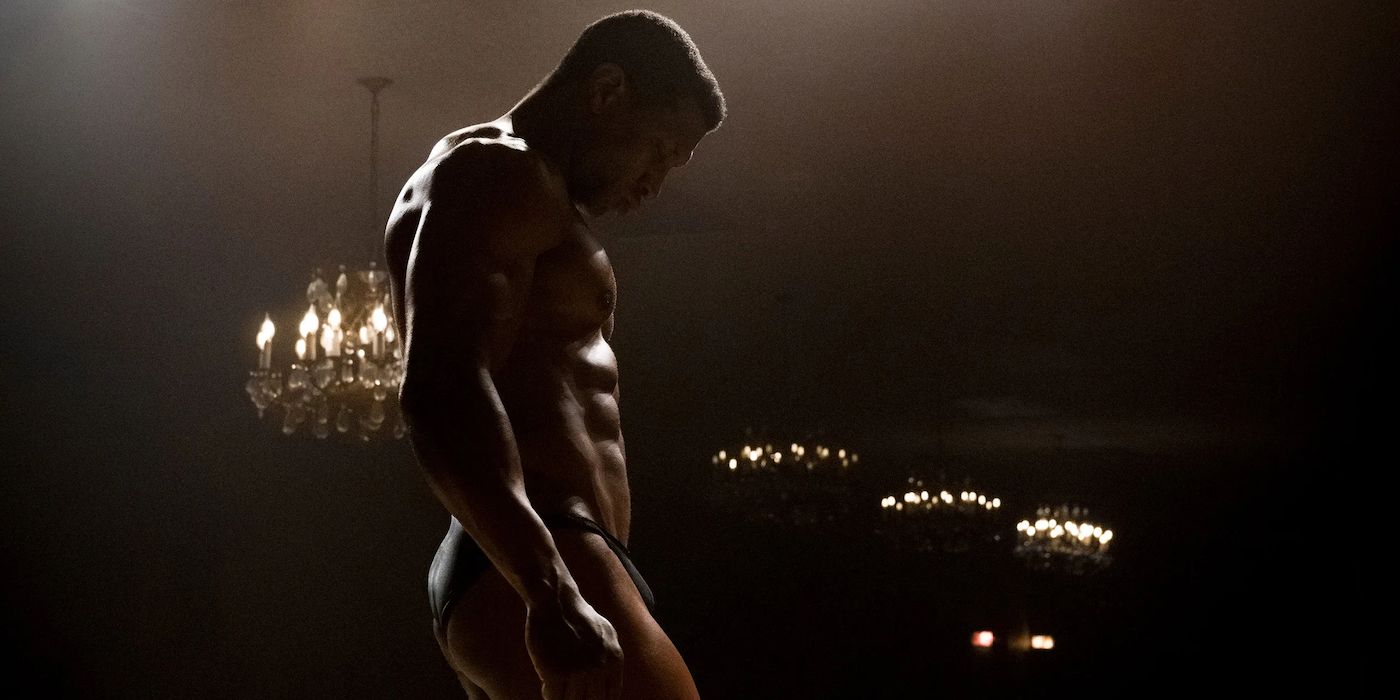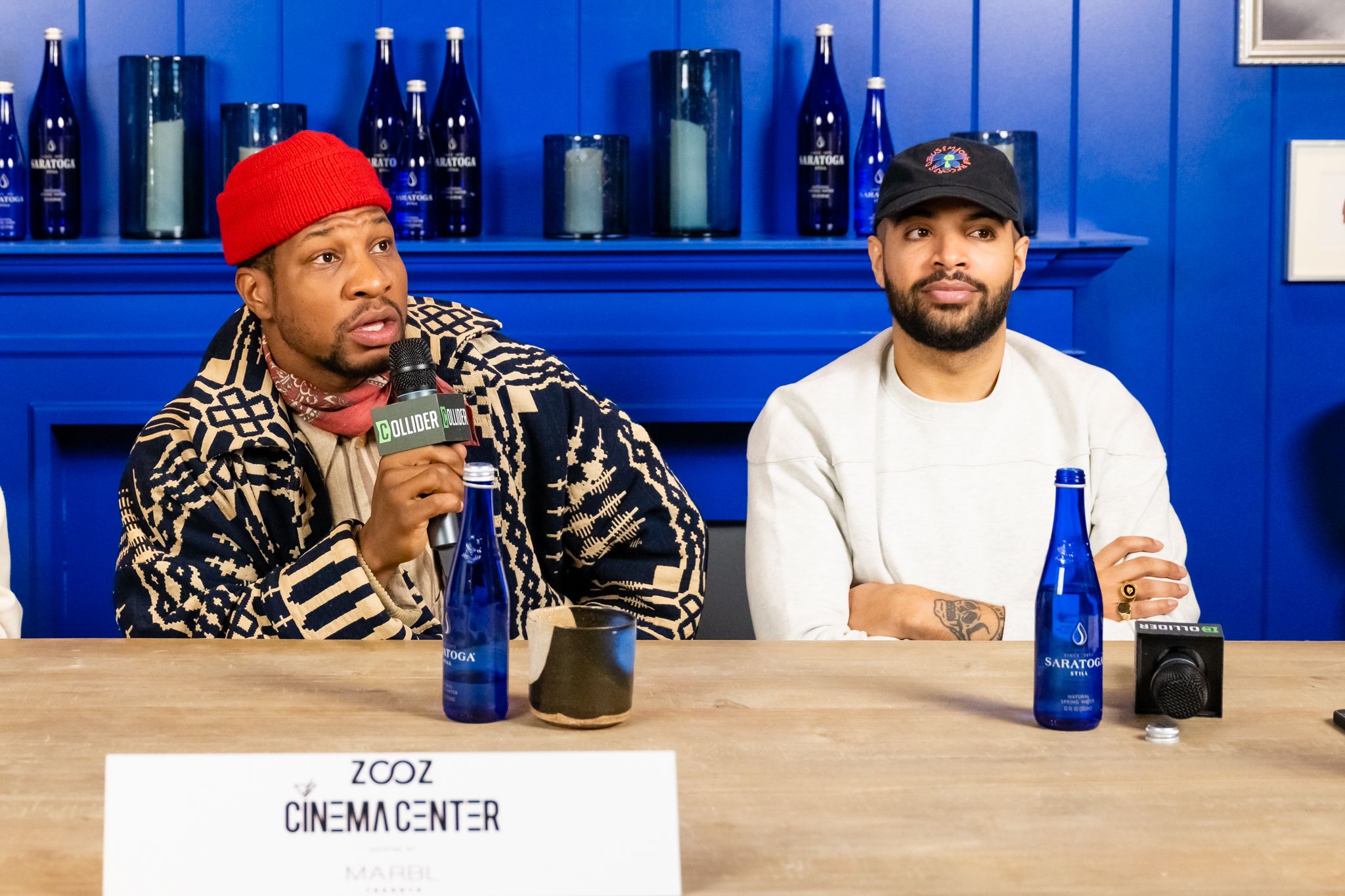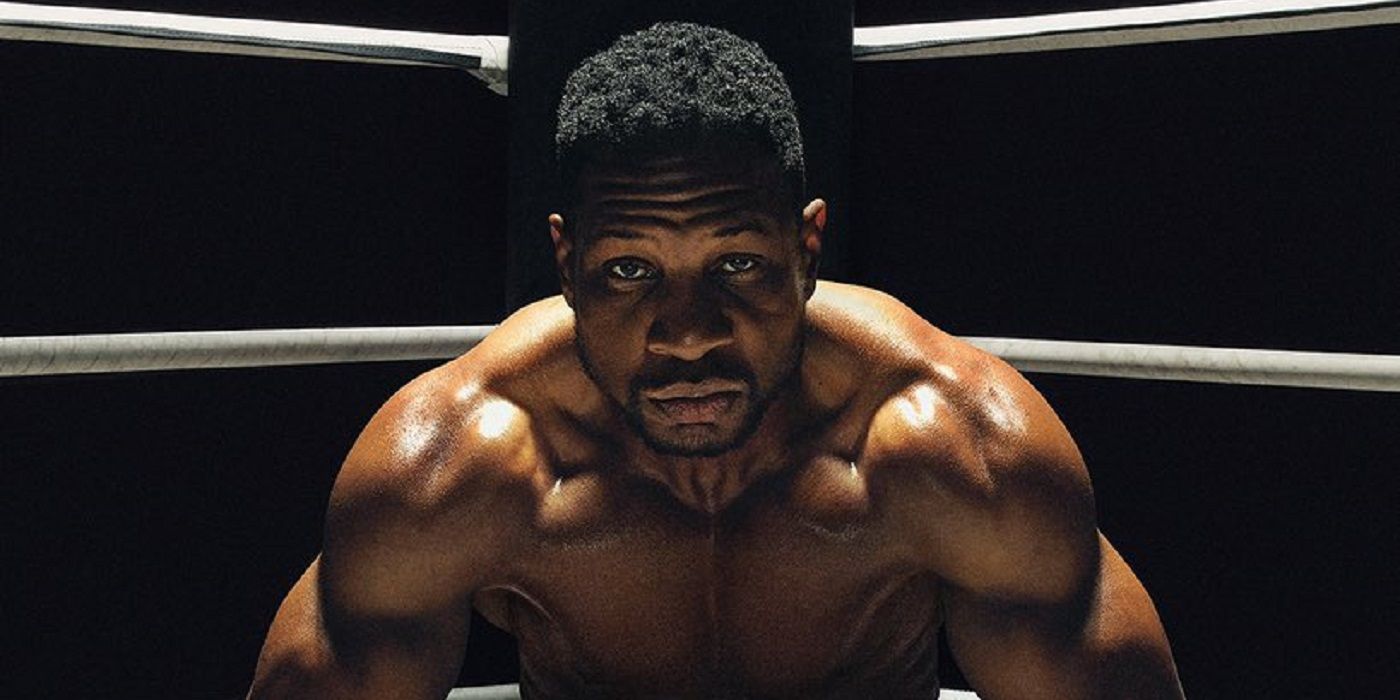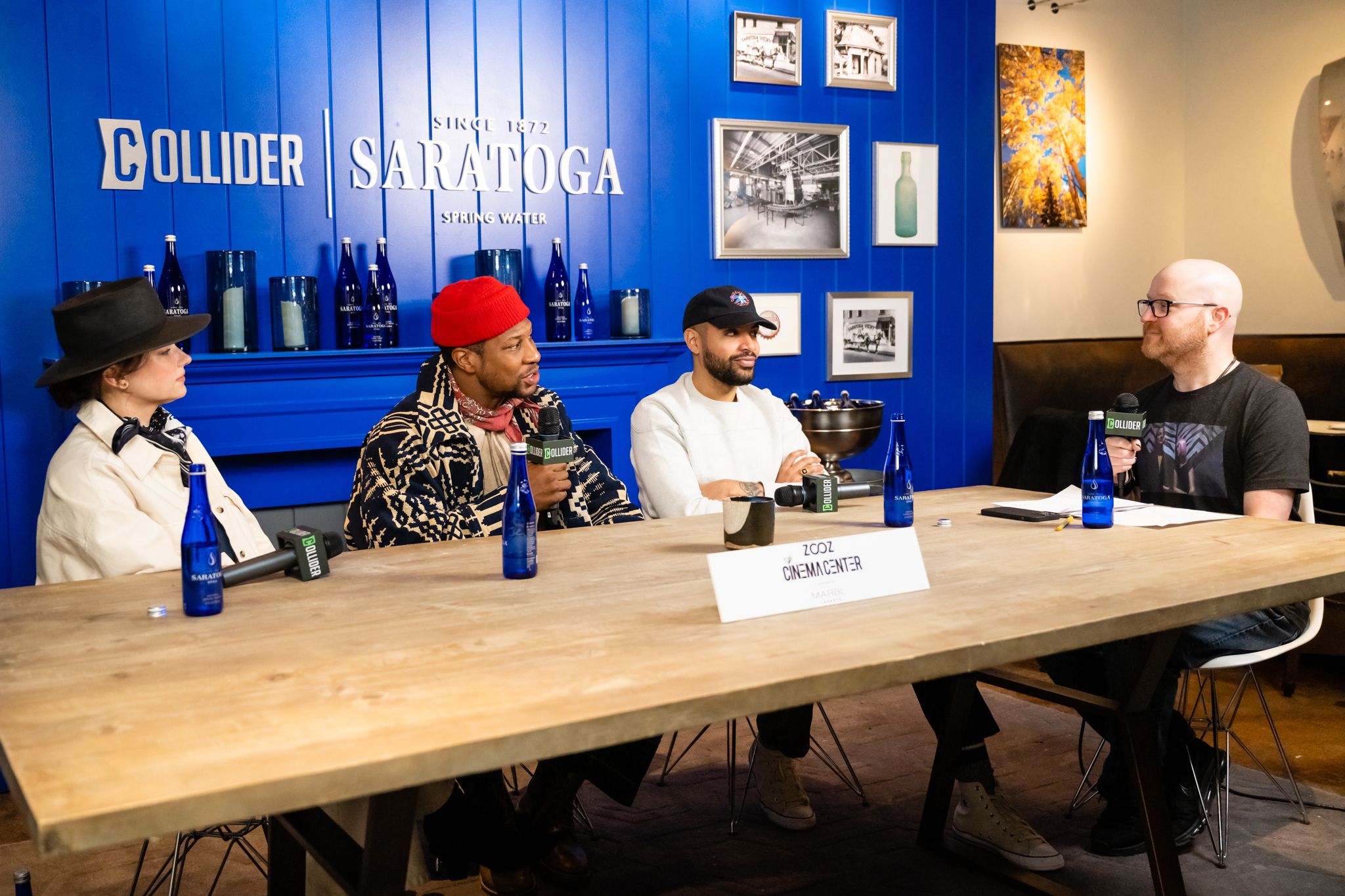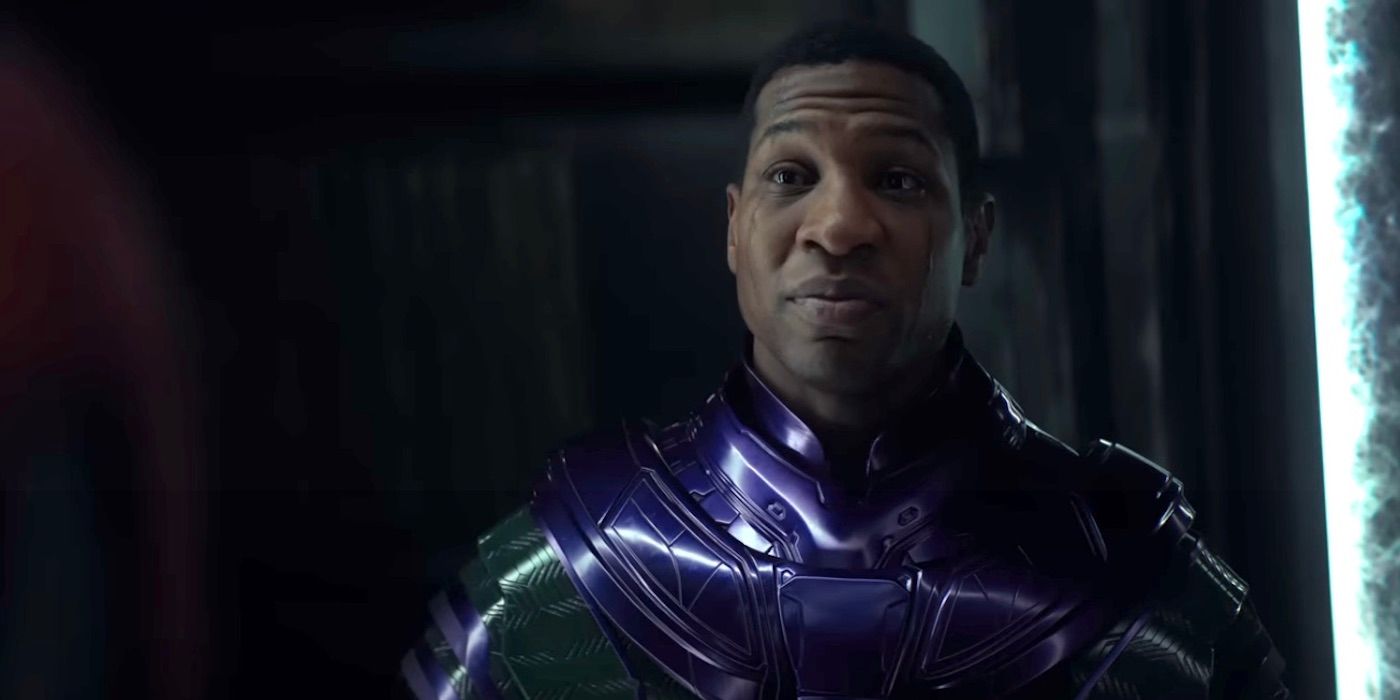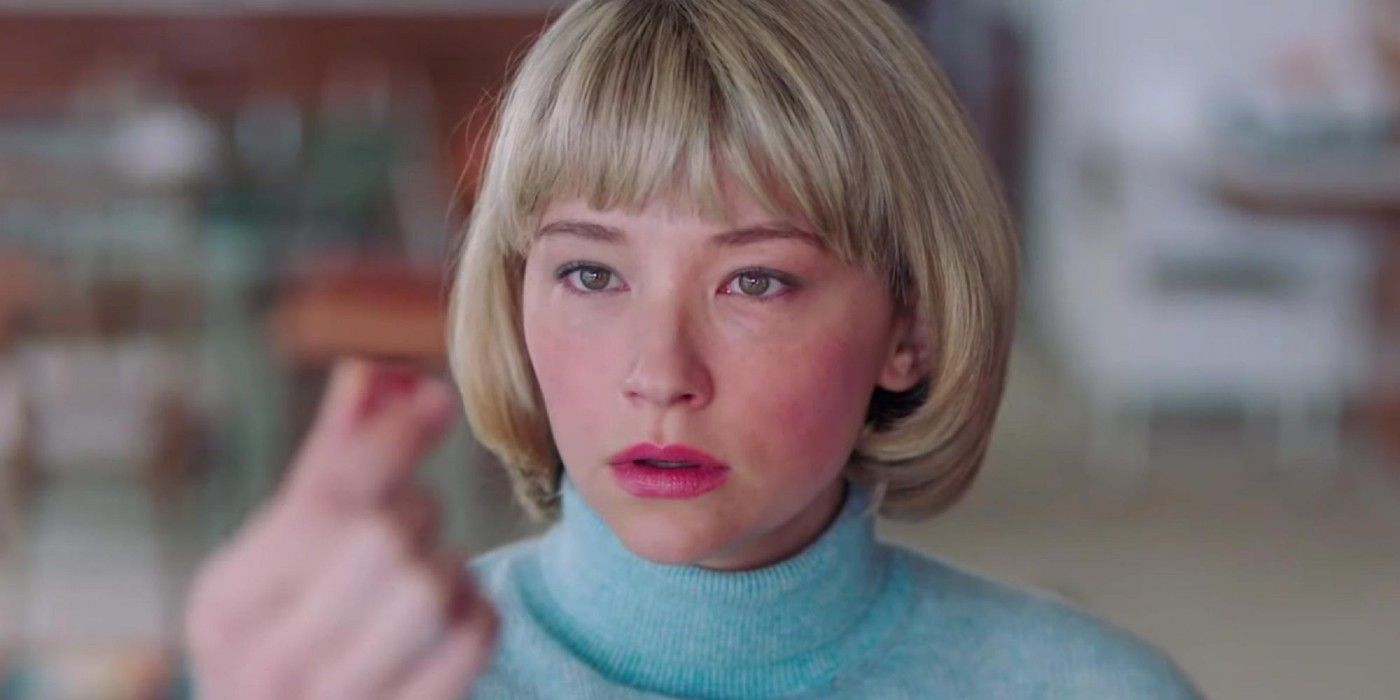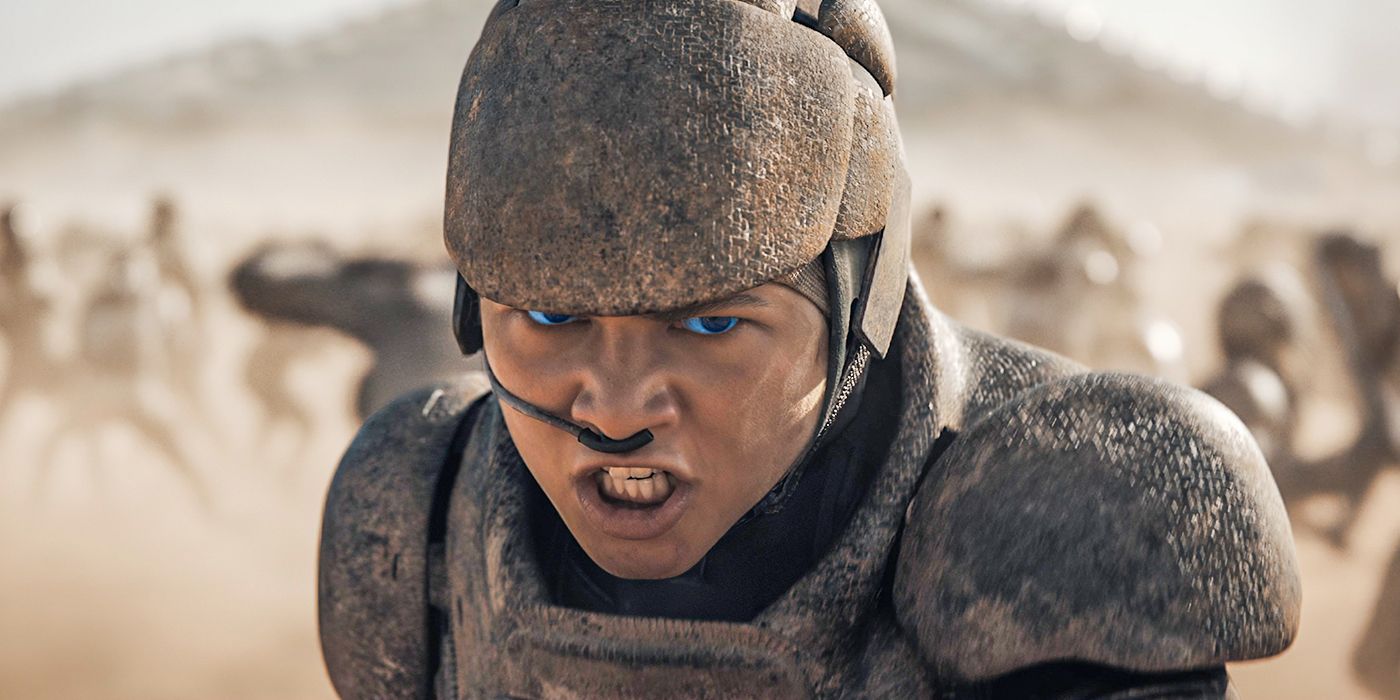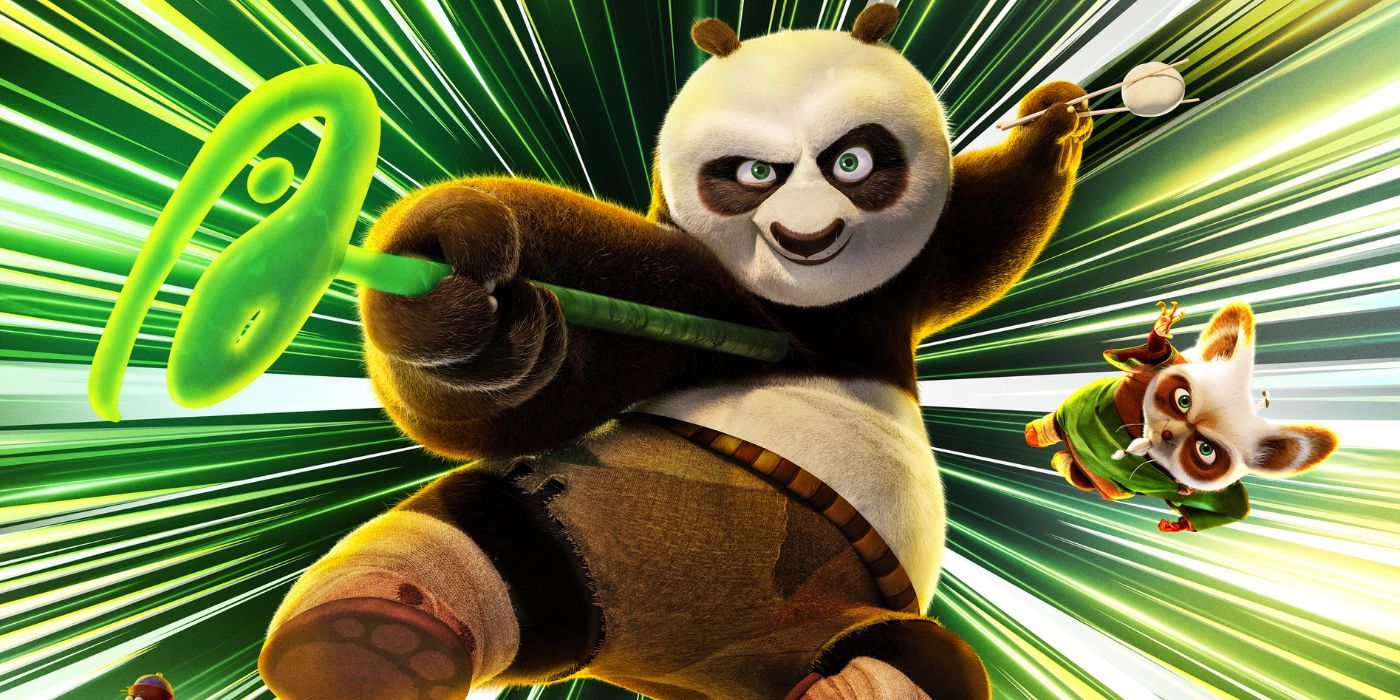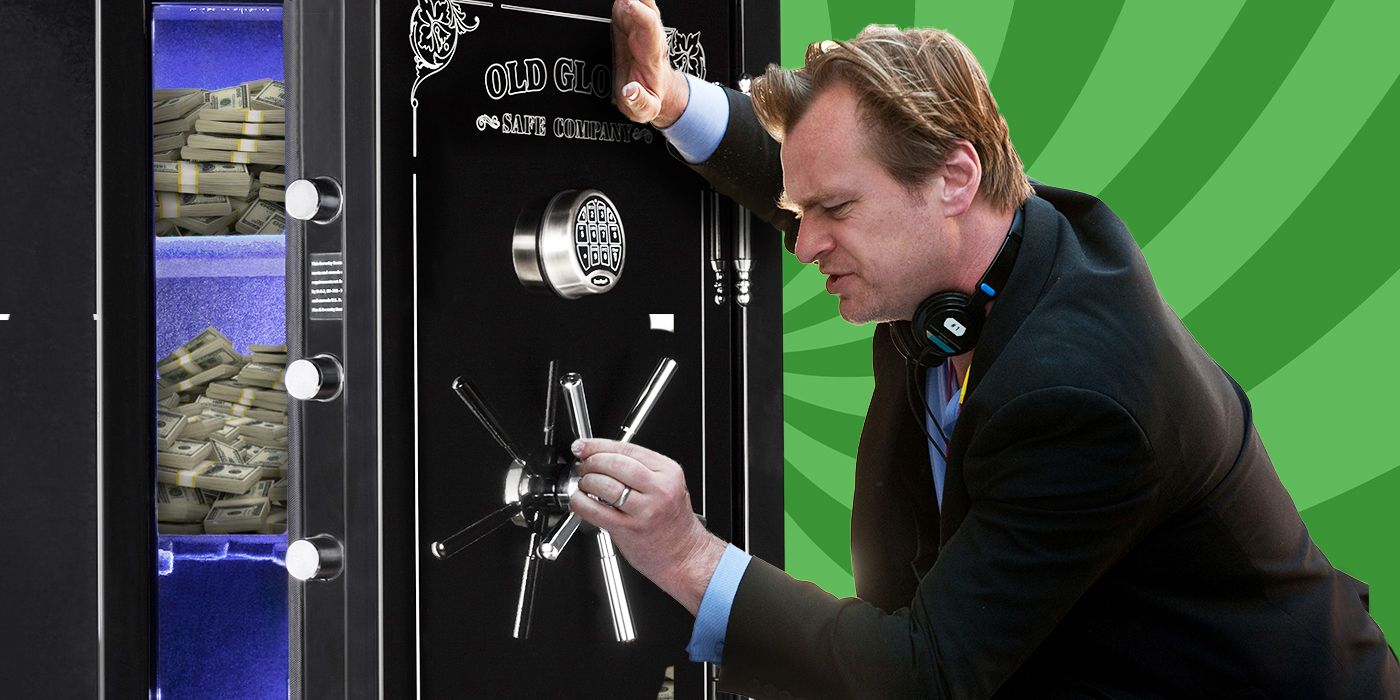Writer and director Elijah Bynum’s second feature film, Magazine Dreams, stars Jonathan Majors as Killian, a Black, amateur bodybuilder with dreams of winning world championships. He can see himself on the covers of magazines, but in order to achieve these goals, Killian strives for unattainable perfection. Struggling not just with his own self-image and physique, Killian is also dealing with his inability to make a genuine human connection and is haunted by his own painful past. All of this is exacerbated by mental health issues that make him difficult to maintain relationships with.
Magazine Dreams is a brutal and unflinching look at what someone is willing to do to achieve his dream. Grappling for any ounce of acceptance, or love, Killian pushes himself harder and further until there may be no turning back. In addition to Majors, the movie also stars Haley Bennett, Taylour Paige, and Bradley Stryker. Bynum’s second feature film took home this year’s Jury Award for Creative Vision.
Ahead of Magazine Dreams’ world premiere at the Sundance Film Festival, writer-director Elijah Bynum, Jonathan Majors, and Haley Bennett stopped by the Crumpa Studio presented by Saratoga Spring Water in Park City to speak with Editor-in-Chief, Steve Weintraub. During their interview, Majors and Bennett break down why Magazine Dreams is such an important story to tell, and Majors discusses the intense training and dedication it took to prepare for his role as Killian. They reveal the impressively short timeframe they had to shoot the film, their tight budget, and how the scenes changed while on set. Bynum also teases his next project, the star he has his eye on, and what he learned from his first film, Hot Summer Nights, with Timothée Chalamet, Majors talks Kang the Conqueror, and both stars share what they’ve learned throughout their careers. For all of this and more, you can read our full interview in the transcript below.
Crumpa: No one, including myself, has seen the movie yet, and people watching this interview most likely will not have seen the movie. So how have you been describing the film to friends and family?
ELIJAH BYNUM: Well, the way we’ve been describing it is, it’s a movie about an amateur bodybuilder, with dreams of bodybuilding superstardom, and we follow his trajectory from someone whose entire life is centered around becoming a superstar in the bodybuilding sport, in the bodybuilding world, and then some of the obstacles he faces along the way.
Jonathan, you have been doing some exceptional work recently and have been offered some really great scripts. What was it about this project that said, “Oh, I need to do this.”?
JONATHAN MAJORS: I read the script and immediately thought, there’s a lot of secrets here, you know? I try to do work that illuminates and brings things to the forefront, and the story of Killian Maddox in the world of Magazine Dreams is a world populated with people who have been rebuked in many ways. That really pulled me, that idea that there’s a whole group of folks that have been put aside by society, and how we cope with that, and I aligned with that in some ways, and I felt very seen in that. As the viewers will see, Killian deals with that push away, that invisibility issue, on multiple accounts in many different ways. So yeah, I mean, it’s wicked. Yeah, so that’s what got me, you know, that’s what got me.
Haley, I am a big fan of your work. What can you say about your character, and what was it about this story and script that said, “I want to do this.”?
HALEY BENNETT: Well, first of all, I read the script and I really connected with it. I had a conversation with Elijah that really excited me, his vision for the film, and of course, I was really excited for the potential to work with Jonathan because he’s incredible.
I’ve seen the film. I was lucky, I got to have the film screened for me last night and it’s honestly such a – I don’t mean to embarrass you, you were so humble – this is a tour de force performance, and virtuoso directing. I’m setting the bar very high right now. So, that kind of terrifies me.
In terms of my character, Jesse, for me, I think that this film is a cinematic poem for the underdog, and I love what you said about illumination. I think Jesse is a character who also is accustomed to being rejected. She’s incredibly empathetic and humble, and really excited about this idea of connecting with another human being. I mean, quite giddy, and there [were] a lot of qualities that I saw in myself, heightened qualities. She’s a character that’s very shy. So, this idea of making this connection with another human being, it’s such a lovely sweet scene that they have together, and that was why I wanted to do the film.
The photo that’s been released has you doing a bodybuilding pose, and you’ve clearly worked out. How much time did you have from getting the information, “We’re going to start shooting,” to saying, “Oh, I really gotta hit the gym…” and how did this film play into Creed III because you obviously have to train for that as well?
MAJORS: The invisible work began… [To Bynum] I mean, right at the height of COVID I got the script?
BYNUM: October 2020.
MAJORS: Yeah, so wherever we were in that. And I was held up in New Mexico reading it, and that’s the subconscious work, you know? That’s a long time ago. Yeah, you don’t have that much runway, you know? So, subconsciously I’m thinking, “I’m gonna do this bodybuilder film, at some point in life I’m gonna be doing this.” So I began to think about it, dream about it. At that point, I was shooting The Harder They Fall.
The question to [Creed III] and Damian, yeah, I was training the whole time. You know, Killian is the apex. [Kang the Conquerer], Damian, Killian, that’s the order they were shot. And so the process began that long ago for that. The training routine altered from role to role. The diet really changed to become Killian.
Can I ask you something? Were you an asshole to be around when you were in full training mode because you couldn’t eat anything, or were you able to be..
MAJORS: Okay, okay, here it is. I was not an asshole. I got to be more myself, right? Because I am quite introverted. Don’t really love people… but all three of us, I think, are very introverted. So in bodybuilding, I found a role, an occupation, that really allowed me to really be myself. I’m a Virgo, so aesthetics are important, you know what I mean? I’m like, “This is not a problem for me,” you know what I mean?
It was the bodybuilding, it was all these things, that connected me directly to the piece, and so I was very happy while I was shooting it. And I ate a lot. It works different ways with different people, some people can’t eat, some people have to eat a lot. I had to eat a lot, and so I was probably most grumpy meal 6, 8, 15, pacing around my apartment, you know what I mean? Like just fucking chicken, rice, you know, just like trying to get it down. I was very grumpy then, but after that, I was laughing.
BYNUM: Yeah, we made sure we move the schedule around his eating
MAJORS: [Laughs] Yeah.
BYNUM: Because you don’t wanna schedule a scene when Jonathan’s grumpy, that’s not fun for anyone.
So Elijah, a little bit of a jokey question, but in your last film, you had Timothée Chalamet before he blew up, and obviously for your second film, you have Jonathan Majors. Do you think he has a career after your movie?
BYNUM: Jonathan, you know, maybe if he shaves that thing down on his face… Of course, I think Jonathan is probably the most interesting and exciting, and talented actor in his generation right now, and I’m just lucky to have him really – someone’s throat is being cleared… Haley as well, but we were on the subject of Jonathan. I’ll get to you next, Haley – A career and then some. I think he can do anything you ask him to do, and I think any director who’s lucky enough to work with him should be careful what they ask for because they’re gonna get exactly that, and then maybe a little more. Hopefully, the movie and the director can handle it because he’s gonna give it to you. That’s for sure.
For people that have not seen Cyrano, I’m gonna talk about Hayley for a second–
MAJORS: Cyrano is wicked.
Yeah, I love that movie and you are so great in it. Because I haven’t seen Magazine Dreams yet, I can’t talk about your performance. I’m just gonna say if you haven’t seen Cyrano or, recently Till, just to cite two recent things, you know, she’s okay.
MAJORS: Wicked.
I am curious about the making of the film because this isn’t a Marvel movie. You don’t have some crazy budget. So how much time did you actually have for the shoot, and what ended up being the toughest part to pull off with the time and budget?
BYNUM: Yeah, that’s a good question. We shot it in 24 days, which was… Well look, it doesn’t sound like a lot and it’s not a lot, but hopefully, some of that intensity and focus found its way onto the screen because we had no choice but to work that way.
BENNETT: So many of the scenes are… he’s carrying the entire film. It’s an ensemble, but he carries this film, and I think that makes 24 days much more achievable. You probably disagree. You had a lot of locations.
BYNUM: We had a lot of locations, but it does, it helps when you have one man to keep coming back to. And you’re in it with him, and you’re in the trenches with him. We would shoot an entire day and then on the ride home, as we’re driving back, the phone would ring and it’d be Jonathan, and we would talk about the next day’s work because we didn’t have enough time to do it other ways.
MAJORS: “Yeah, bro, so listen, listen, listen… I know, I know, I know, I know, I know, but what do you think about this? Tomorrow? I’m talking about tomorrow’s work, and what do you think about this?” And Bynum’s just like, “Yeah bro. Yeah bro. I think that’s…” We’re literally work-shopping… We shot in 24 days, 24/7.
But isn’t that what you have to do when you have that kind of schedule?
MAJORS: That’s what you should do in general.
BENNETT: It’s good to be immersed 24/7.
BYNUM: Yeah, I think the first budget we did the line producer was like, “This movie wants to be 45 days,” and we couldn’t afford to do it that way. But I do think if we had 45 days to do it, I don’t know if the movie would have turned out the way it did.
MAJORS: There was an energy on set. Not many people have gone to a bodybuilding competition. You know what I mean? Not many people. I hadn’t gone to any up until go time, but it is intense. I mean, the energy is intense. I mean, day one, the way we hit the set, we looked like bodybuilders. We were focused. And the whole crew was like, “Oh it’s like that?”
BENNETT: It feels very documentary-style.
MAJORS: Yes.
BENNETT: Capturing real shit.
MAJORS: Yeah, from the human beings to the technology.
BYNUM: And you just think of the action of contracting a muscle. It can only stay there for a few seconds and then it burns out.
MAJORS: Yeah that’s right.
So for all three of you, when you were looking at the 24-day schedule, what was the day you had circled that said, “Oh, this is going to be a real day.”?
BENNETT: We had 11 pages.
BYNUM: Yeah, there’s a scene they have together on a date that’s 11 pages of dialogue, and that was probably the one that we all lost a bit of sleep over. There [were] a few of them that kept us up at night, but that was probably the big one.
MAJORS: There are a few. I mean, every day it was wartime, every day wasn’t it? You know? But there was, for me, a moment of competition, right? Bodybuilder, he does competition – no spoilers here. That was the day. Because I was training, we were doing the work, and there’s a part that Bynum couldn’t help me with, and I didn’t have the wonderful Hayley to be my scene partner. It is literally going in competition, the posing, what we call drying out, you know, all of that. Talk about crazy. If there was a moment where it was like, “Oh, I’m feeling crazy,” was when I’ve pulled out all the water, and then this insane man wants me to run.
BENNETT: Was that that long shot? That incredibly long shot?
MAJORS: Yes, those days were intense because the body was at a level where you’re only supposed to hold that for three hours, and he’s supposed to go have a hamburger, but I couldn’t because the next day we’re shooting after that is training, you know what I mean?
So that day I had circled because I was working with Bynum, I was working with my trainers, I was working with my nutritionist. I mean everybody was working, you know, that was, that was D-Day, you know?
First of all, I can’t imagine doing that. I don’t think people who watch movies realize that when, for example in Top Gun: Maverick, when they’re doing that beach scene they were training and specifically building up to get those shots, you know? When you’re making a shot like that, you’re training for that moment and it’s not a natural thing. You have a team of people to help you achieve that look.
MAJORS: There’s something to be said to what he said. I just don’t know what the right response is.
It’s mostly you, but there are people to help you.
MAJORS: Yes.
I think.
MAJORS: Yes.
BENNETT: Okay, I want you to get down and do 300 push-ups.
MAJORS: And she’s gonna help you do it.
BENNETT: I’m working. Really, I’m helping you.
MAJORS: She’s gonna count.
You know, I don’t do interviews too often.
MAJORS: No, no, no, you’re absolutely right. It takes a village to make the film and to get those shots. The beautiful thing about bodybuilding, and I sincerely mean it, is the isolation. Because no one can make you eat that food. You know, I can look at a guy now, a bodybuilder, and go, “I see where you cheated. I see where your integrity broke.” Or, “I see how hurt you were.” I can see that in somebody’s body, you know what I mean? And nobody can aid you, and shove the food down your throat, or make you lift that way.
We had this thing that we would say on set, I would be humming to myself, “Big rep. Big rep, big rep, big rep…” Which means, “This [is] it. This is gonna take everything you [have] in this moment.” And sometimes it was looking at that plate of food and being like, “Okay, big rep, bro, just get that down. Just get it down, get back to set, and go.”
BYNUM: And some of the food he was eating was not just offset. It was part of the scene as we’re rolling the camera, and he would actually step away between takes and clean out.
Sure. Are you a fan of eating scenes on camera? Because I don’t know if I could handle it.
BYNUM: I don’t think anyone is.
MAJORS: Listen. I love all of it. You know what I mean? I love all of it.
BENNETT: Depends on what it is.
MAJORS: Yeah, it depends on what it is.
BENNETT: Thumbtacks…
MAJORS: Yeah, Swallow? Let’s talk about it.
BYNUM: Yeah, I guess you don’t want to eat everything.
BENNETT: No.
So the editing room, let’s talk about that real quick. It’s ultimately where the film comes together, and I’m curious how this film changed in the editing room in ways you did not expect.
BYNUM: Not too much. Well, I shouldn’t say “not too much,” but we headed into the editing room feeling like we had pretty good footage to work with. But once we got in there, we didn’t look at the script ever again. I think by the time you get into the editing room, the script doesn’t really matter much anymore because the footage is now what you’re working with, and the footage should be the guide.
What we found early on was, it’s best to just swim with the current and let the movie tell you what it wants to be. And we were lucky enough to have incredible performances across the board to choose from, so then it just became calibrating what we wanted. There was a little bit of restructuring in the second half because certain scenes would take on a different meaning depending on where they were ordered in the movie, but it was a pretty smooth editing process really. Then it just became about what music sounds best.
You’re in the Sundance Film Festival, one of the biggest in the world – again, congratulations. When did you find out you were part of it, and how long did you have to hold the secret?
BYNUM: Oh, I think I was called days before Thanksgiving. Someone from Sundance called me and told me we were in. I held the secret for about 15 seconds. Yeah, I called my mom and I let her know.
When did you guys find out, and were you able to not tell? Did you have to hold it for a few weeks?
MAJORS: I mean, I’m in good practice of keeping secrets around work. It’s like a gift, you know what I mean? You kind of just want to hold it, you know? We spoke about it, and that was good. But, I held it until, I think, it was announced, you know I mean?
BENNETT: Yeah, I’m a terrible secret keeper. Like anyone I ever buy a Christmas present for knows what it is before they open it on Christmas. I don’t know why I wrap them anymore. I think I found out on a Friday, and then I told, internally, my family, my daughter who’s like, “What are you talking about?” Then I think I kept it a secret until it came out, but it was so unexpected. It came out of nowhere and I was like, “Wow, that’s so great, that’s so incredible. Congratulations!”
BYNUM: Low expectations?
BENNETT: Not low expectations, but it’s like, you know, you do a film, and you kind of move on and forget about it. Of course, you don’t because you’re in the editing room making your magic. But for me, you’re like, wiping mud off boots and then you get a call, and [they’re] like, “The film you were a part of is going to Sundance.”
I have an individual question for the two of you, and an individual question for you. If you could get the financing to make anything you want, what would you make and why?
BYNUM: I have something I want to do next? I can’t share it right now, but I have something in mind.
I understand. Is that something you wrote?
BYNUM: It will be something I’ve written. There is some source material, but it’s based off something very old that I’m gonna take a little bit from and adapt it here and there to make it fit the story I have in mind. And I do have an actor in mind for it. You might be able to guess who that is.
I’m not going to pressure you by saying the person’s name who’s sitting next to you. For the two of you, you guys have both done such great work and I’m curious, if someone has not seen anything you’ve done before, what is the first thing you’d like them to watch, and why?
BENNETT: My eighth-grade choir performance, my talent show. No, I would definitely say Swallow probably. Swallow came out during the pandemic, like right during the pandemic, so that was unfortunate. I think that was difficult for the momentum, and to find an audience. Yeah, that’s it.
MAJORS: I don’t really have an answer for that, you know? If you catch it, you catch it. I don’t know. Anything? I don’t know, man, it’s all a long throw, you know? That is that, that is that.
BENNETT: Everything connects. Oh, I know. I’d like to see my footage from a Terrence Malick film. I would like to see it.
BYNUM: Which film was it?
BENNETT: A film that I was cut from.
BYNUM: He cuts everyone. Don’t feel bad.
Yeah, it’s interesting because – I forget who it was, but someone thought they were the lead in The Thin Red Line, then went to the premiere–
BENNETT: I think it was Adrien Brody.
MAJORS: Adrien Brody.
BYNUM: I think it was Christopher Plummer, wasn’t it? No? Oh, that’s The New World.
MAJORS: Two of us just gave the right answer.
BYNUM: And one of us didn’t.
MAJORS: You heard it clearly.
No, but seriously, he thought he was the lead and then he went to the premiere and he was basically not in the movie.
MAJORS: I’ve been told to prepare myself. That that might… yeah, I’ve been told to prepare myself in regards to Magazine Dreams.
BYNUM: You’re no longer in the movie. I hate to break it to you now on Crumpa.
Jonathan, I definitely have to ask. You know I’m a fan of these Marvel films. I know you’re not going to tell me anything about the future, but what is it like being part of a universe where you are going to be such a central character for the next few years? A: it’s a guaranteed gig, but B: you are a very big focus, and I’m curious what it’s like for you. Are you excited about it?
MAJORS: It’s exciting, the fact that… Think about theater, right? You do a play, you have no idea if someone’s coming to that show, you worked your ass off, [but] you have no idea. The tickets don’t really matter, you know, you already checked into a different ecosystem, you know? You’re hoping people are gonna come see the work you’ve done in that space, in that black box, for that long, right? You’re hoping it’s gonna happen.
With the MCU, and with Kang, there is such a beautiful sensation knowing that the work that myself and my collaborators do is going to reach people. That responsibility is something I honor, and something I really take on. [There are] 50 guys outside. All 50 of those guys are gonna see [Ant-Man and the Wasp: Quantumania]. That’s beautiful, you know what I mean? That guaranteed impact, you know?
One of the things – and I could be wrong – is that you’re playing the same character, but it could be versions of the same character, so you’re possibly not the same.
MAJORS: I mean, as an actor, no spoilers here, we can take it there, but Kang has variants, you know what I mean? [There are] always variants. I’m Kang. So whatever comes through comes through, you know what I mean?
In a movie like this, Magazine Dreams, there are going to be people that are Marvel fans that are going to seek this movie out specifically because they’ve seen you in a Marvel movie, or someone saw you in Till, or Swallow, and said, “Oh I want to see her next movie.” That’s obviously not a reason you cast Jonathan, but it’s an added benefit that more people will see it.
BYNUM: Yeah, it doesn’t hurt at all. It’s great because I think it will bring more eyeballs to a movie that otherwise might not have been seen. With that said, it is not the reason I cast either of them. I cast them because I think they were just perfect for the roles that we wrote, and I think they embodied the spirit of the character, and they’re actors I’d been wanting to work with, and I was grateful to work with. The fact that they now have like these big franchises that are bringing attention to them, all the better, but that’s not where I came from.
MAJORS: That’s the beauty about Sundance, about independent film, and about, I mean, what you and I do as being in front of the camera. That having either one of us in the film at whatever point in our career then brings people to a different type of story, you know what I mean? That’s beautiful. That then helps us tell similar stories like Magazine Dreams from other points of view, other vantage points. If you get folks that have… I mean, it’s also a different muscle, to be honest. The speed of it is different, the intensity of it can be different unless you hold it steady, but yeah, that’s… I’m rambling, but it’s…
BENNETT: No, it’s true. You know, you have an infinite amount of days making a Marvel film and you have 24 days to make Magazine Dreams, and 18 days to make Swallow. It’s a different beat, it’s all beautiful, but yeah, it takes different muscles.
MAJORS: And it’s all the machinery to – let me know if you agree – it’s all the machinery to get stories of catharsis out to the masses, out to the people, the work is always about the proletariat. And so whatever fuel will get that engine going is what needs to be put in that thing to get those stories out. You know, especially when you have people at the helm of it that are orchestrating stories that will change, shift, move, and evoke society. You feel me?
100%. I’m curious, what did you learn making your first film that you applied to this one in terms of when you’re on set, the shots you’re looking for, and maybe the types of lenses you’re using?
BYNUM: I think what I learned was how important it is to be present in the moment. Not plan the entire movie months or weeks or days before, but to get there on the day and see what your actors are giving you, and see what the environment is giving you, and be able to have a plan but adapt on the fly. And look around and know that you’re not making a movie by yourself and that you have a team around you, and you have some wonderful collaborators.
[There are] some specific scenes in this movie – which no one’s seen yet so I won’t spoil, but I had an idea in my mind of how the scene should go, and how the blocking should be, and where the camera was gonna be. But before I started imposing that, I asked Jonathan during rehearsal, “What would you do here?” And he did something completely different than I would have ever imagined, and it was interesting because it was fresh, it was original, it was unexpected. It’s the beauty of it. Then you have to have the courage to go, “Well fuck, that’s not at all what we thought we were going to do, but I trust him and I think that’s better, and I think it’s more unique, and I think it’s more organic to the character,” and you give yourself over a little bit.
I think I was probably a little too rigid the first time, and a little too paranoid, and I knew the movie I was trying to make, and then I went out and just tried to make exactly that instead of seeing what was in front of me.
BENNETT: You also want people to think that you’re in control. You know, you surrender yourself to your collaborators. Whereas, I think, the first time you’re directing something you’re like, “Oh I have to have control, I want everyone to think I know what I’m doing. I don’t want anyone to doubt me…” I’m just guessing all of this. But [there are] such incredible sequences where you really feel like it’s a dance between Jonathan and the direction, and the cinematography, and it is so glorious to experience it. You really feel that sense of everyone working together.
To me, it felt like, at certain parts, there were certain aspects of the film that reminded me of [Martin] Scorsese and all of these ‘70s films that I really love. In some points, it reminded me of the Joker, and this idea of Killian being this caretaker, and, like you say, these outsiders who start spiraling and rebelling because they are just desperate to be seen. So I could drop, definitely, parallels to the Joker. But really, the cinematography and direction, and you guys were all working together, is stunning.
BYNUM: There’s a scene these two did – this was the 11-page scene we were talking about – and we shot in a restaurant and we had to kill the AC for the sound. It was July or June, or something, it was 100-and-something in the restaurant, and Haley had just landed from London and was jet lagged. I had an idea in my mind of what the scene should be, and the pacing of it, and the tempo, but then just watching them do a few runs of it, and talking to them about how they were feeling. It changed, for the best, really.
BENNETT: I’m sorry.
BYNUM: No, no, don’t be sorry, it changed for the best because whatever I had in my mind was some sort of, you know, preconceived, nerdy writer thing that we can come up with in our room, but when you bring human beings into it, and it becomes real, it changes.
BENNETT: I think it’s the same for actors as well. You have an idea of how you’re gonna be, you know how you’re going to act in a scene, and then that completely changes based on your relationship, the chemistry with what the other characters are bringing, in this case, Jonathan, and it’s a dance. It’s not a solo, you know, it’s not a solo mission.
For the two of you, when you first stepped on a film set I’m sure you prepared a certain way, and now that you’ve done a number of roles, I’m curious how you have changed, when you’re on a set, and you’re doing a role, from when you first started? Or do you have a very similar process and way of doing things?
MAJORS: Well, you grow up. I don’t use a specific acting technique or any of that stuff. I read acting books constantly, that’s a fact.
Is there one specifically that you want to point out?
MAJORS: No, I read them all. But then you realize, for me, it went from like, “Oh, you know, I have a way of living and I went to these schools, and I have a point of view on acting,” right? And that’s what I’m doing. And then that point of view, it’s more of a lifestyle. There’s an approach, you know. I think I have a, now, more outward confidence. I had the internal confidence starting out, but now there’s more outward confidence to hold the line and create the space around me. The world of the play, and the world of the character, now expands further than me. If I can make it go from here to here to here… here to the world, to everybody, this is the thing. I mean, it actually is funny, it actually devolves from acting, it just becomes living, and so a lot of that happened in drama school, you know what I mean?
By the time I hit (director) Mr. Gus Van Sant, that was already kind of percolating. So as I matured, it just became, “Don’t be afraid of the thing that’s already there, lean into that.”
BENNETT: Yeah, I think confidence-building experiences, working with incredible actors that teach you a lot, working with incredible directors. And then also, understanding the nature within to lend to characters, and less thinking and more being, less acting and more living.
I think it’s about these great myths… I was making a film recently, and it’s like archetypical journeys, and I think that’s what you mean, is like, “What is the greater universal truth of the character, and how can I tap into those truths in myself to contribute, to be in service of, of not just the character, but the story so that the audience can find their truths within that, and hold the character within themselves?”
Special thanks to our 2023 partners at Sundance including presenting partner Saratoga Spring Water and supporting partners Marbl Toronto, EMFACE, Sommsation, Hendrick’s Gin, Stella Artois, MOU Footwear, and the all-electric vehicle, Fisker Ocean.
